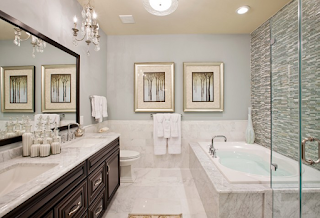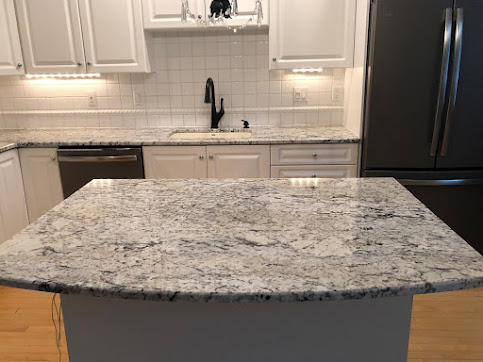NATURAL STONE COUNTERTOP CARE
Marble and granite countertops look elite but require special care. When handled correctly, stone countertops are a safe investment because serves for decades.
Natural stone is distinguished by its presentable appearance, durability, and high-performance characteristics. However, the care of the stone countertop needs special care, since the material is quite capricious.
How to care for your stone countertop
Kitchen countertops are most often made of noble granite or marble, but other options are also possible - basalt, onyx, travertine. The pattern on the surface will be individual each time since it is impossible to make two absolutely identical slabs, which are called "slabs".
Despite all its advantages, stone surfaces have one significant drawback. The stone is porous, therefore it requires protection from moisture, dyes, and fats. To extend the service life, manufacturers apply a sealed protective layer to the slab, which then needs to be renewed at home.
The sealant is inexpensive while improving the moisture-repelling properties of the board and giving it a shine. It is quite simple to understand that it is time to update the protection. If water stains are absorbed too quickly - literally within 4-5 minutes, then the outer layer has become unusable. Frequent application of a sealant is not required. Before work, the surface is degreased, protected according to the instructions on the bottle, and wiped with a dry cloth. If due to careless maintenance, stains are not removed, cracks and scratches have formed, this does not mean that it is time to change the countertop. Professionals can remove defects and polish the slab to a shine.
Prevention of contamination and chips
Marble and granite are durable, but if handled carelessly, scratches will form on the surface. How to extend the service life:
Food should be sliced and beaten on the board, not on the countertop.
- Coasters are required for hot dishes.
- Red wines and citrus juices need to be poured carefully. When spilling liquids, you must immediately wipe the surface - acids have a detrimental effect on the countertop.
- It is necessary to wipe off immediately not only coloring pigments, but even water, which can leave stains on the surface.
Daily maintenance of marble countertops and granite helps to keep the work surface clean without the risk of damaging the slab. For cleaning, you can use:
- Liquid glycerin soap.
- Dishwashing liquid.
- Concentrates without ammonia.
- Special gels for removing stains.
- A mixture of soda and peroxide.
- Professional liquids for removing lime deposits, rust, mold.
- Polishes for masking mechanical damage.
A stone countertop requires more care than a surface made of artificial material such as quartz. Although granite is quite durable and is not afraid of moderate physical impact, it is impossible to drop heavy objects (pans, pots) on the countertop. With careful handling, the work surface will last for decades.
Marble is less durable than granite but also has high consumer characteristics. Plus, it stays cool even in hot weather, so it's a pleasure to work on. But marble absorbs stains faster than granite, so dirt must be removed immediately, and if there is no professional product at hand, it is worth moistening a sponge, treating the stain with soda, and leaving for a few minutes.



Comments
Post a Comment